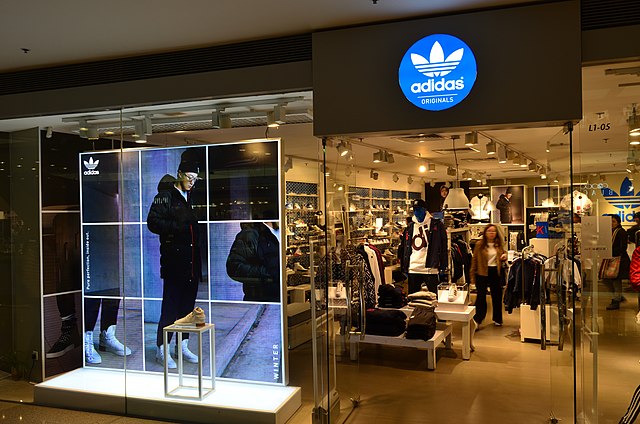Animal-welfare group files notices of intent to sue, demands Adidas get out of the ugly business of sourcing kangaroo skins for its soccer cleats
Los Angeles, CA. — The Center for a Humane Economy (the Center) announced results of a statewide investigation revealing that retailers in California continue to sell soccer cleats from Adidas despite repeated warnings about the violations of the law that forbid this commerce. The Center, having already filed three lawsuits against soccer shops for violating the state’s Unfair Competition Law, sent notices of intent to sue to two more retailers unless they respond with written assurances that the shops would immediately cease sales of the illicit products. The companies are Soccer Pro, Inc. and Asby Sports.
“For years now Soccer Wearhouse and many other California retailers have been openly flouting the law, securing shoes from Adidas and other companies on open display in their shops and even bragging that they know it is unlawful while greedily ringing up sales,” stated Kate Schultz, senior attorney for the Center for a Humane Economy. “Our notifications to law enforcement officials about these illegal activities have not produced action, and we’ve been left with no choice but to attempt to enforce the law through civil proceedings and to bring these violators to court.”

California Penal Code Section 653o prohibits the sale of the body parts of a number of animals in the state, including kangaroos, and it’s been in full force since 2016.
In March, the Center for a Humane Economy lauded Puma and then Nike for pledging to end worldwide sales of kangaroo-based shoes by the end of 2023. Since 2019, the Center has been conducting a global “Kangaroos Are Not Shoes” campaign, urging athletic shoe retailers to stop using the skins from Australia’s iconic marsupials for soccer cleats. Diadora, the Italy-based soccer cleat giant, halted use of kangaroo skins in its product lines in 2020.
On March 13th, Nike announced in a statement it will debut a new Tiempo Legend Elite made without kangaroo skin — a turnaround for the company’s primary soccer shoe. “The upper has a new material that is a better performance solution and replaces the use of kangaroo leather,” according to a Nike spokesperson. The statement went on to note that Nike “will stop making any product with kangaroo leather in 2023. Puma made a similar announcement about 10 days before, almost certainly shaping Nike’s decision. Yet a third global brand in the athletic shoe sector – Adidas – has largely been silent on the issue.
Nike and Puma’s decision to halt sourcing of kangaroo skins and to embrace lighter, better synthetics underscores a trend in manufacturing and popular use of soccer cleats. The world’s elite soccer players are now rarely using kangaroo-based shoes. Out of 172 goals scored in last year’s World Cup, 164 came from players wearing synthetic shoes or conventional leather (though synthetics dominated).
Each year, around two million wild kangaroos are cruelly gunned down in their native habitat. Killing guidelines are deficient and impossible to enforce in the Australian Outback and in the dead of night when the mass shootings occur. What’s more, commercial shooters are permitted to shoot mother kangaroos even when the joeys are still in their pouch or nursing. The industry’s commercial code instructs the hunter to then kill the joey by blunt force trauma to the head, which is often accomplished by slamming the joey against the side of a car or another hard surface. If the joey scampers off in fear, evading capture by the hunter, they are certain to die from exposure, starvation, dehydration, or predation.
“Adidas has become a notable outlier in the athletic shoe industry by continuing to source kangaroo parts for shoes that can be well-made from other fabrics,” noted Wayne Pacelle, president of the Center for a Humane Economy. “What’s more, the company is continuing to see its shoes illegally peddled by soccer storers throughout California and it’s not doing a damn thing to stop it,” he said.
As part of their “Kangaroos Are Not Shoes” campaign, the Center for a Humane Economy and Animal Wellness Action (AWA) produced a groundbreaking report in June 2020; premiered a 60-second film in February 2021; erected billboards near Nike headquarters in Oregon in March 2021; organized protests not only in California but across the United States and in Australia; and funded the establishment of the International Kangaroo Protection Alliance (IKPA) in April 2021. AWA and the Center have also assisted in the introduction of both federal and state legislation banning the import and sale of kangaroo products — most recently, for example, in Arizona, Connecticut, New Jersey, Oregon, and Vermont. Multiple lawsuits have also been filed in California in the summer of 2022 and early 2023, alleging that soccer retailers are illegally selling cleats made of kangaroo leather in violation of state law.

